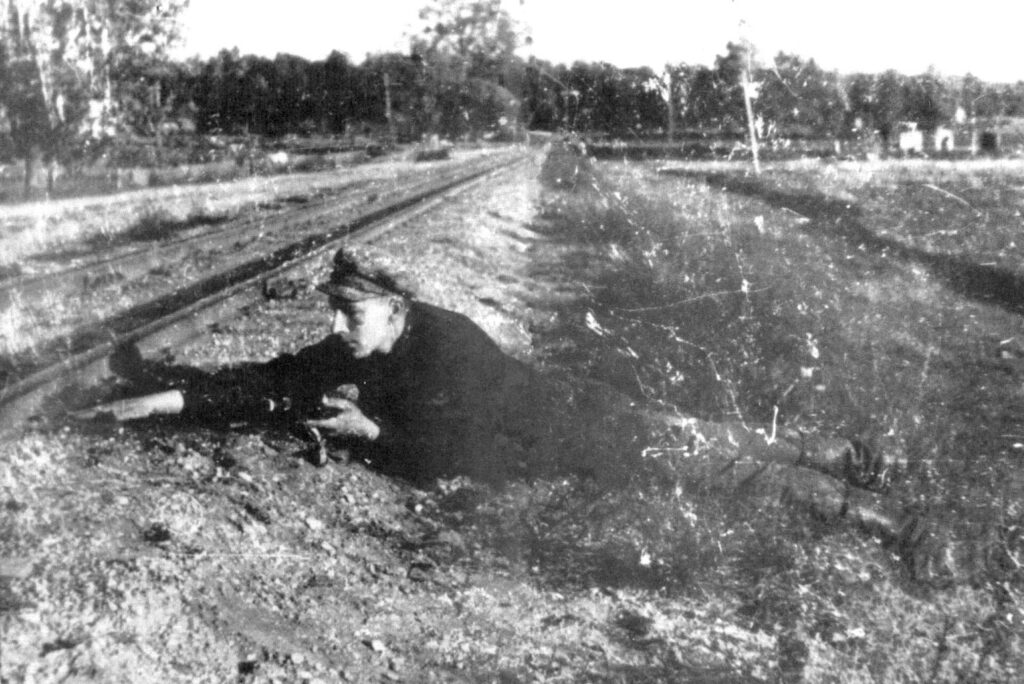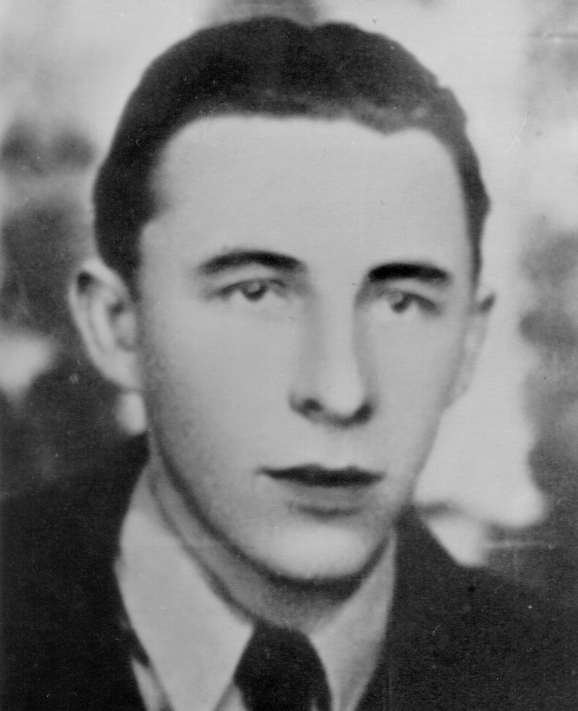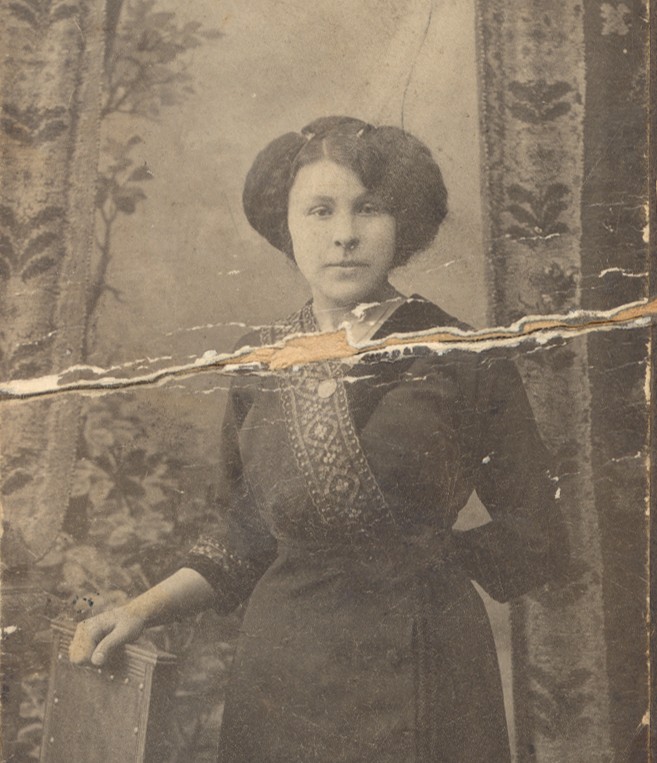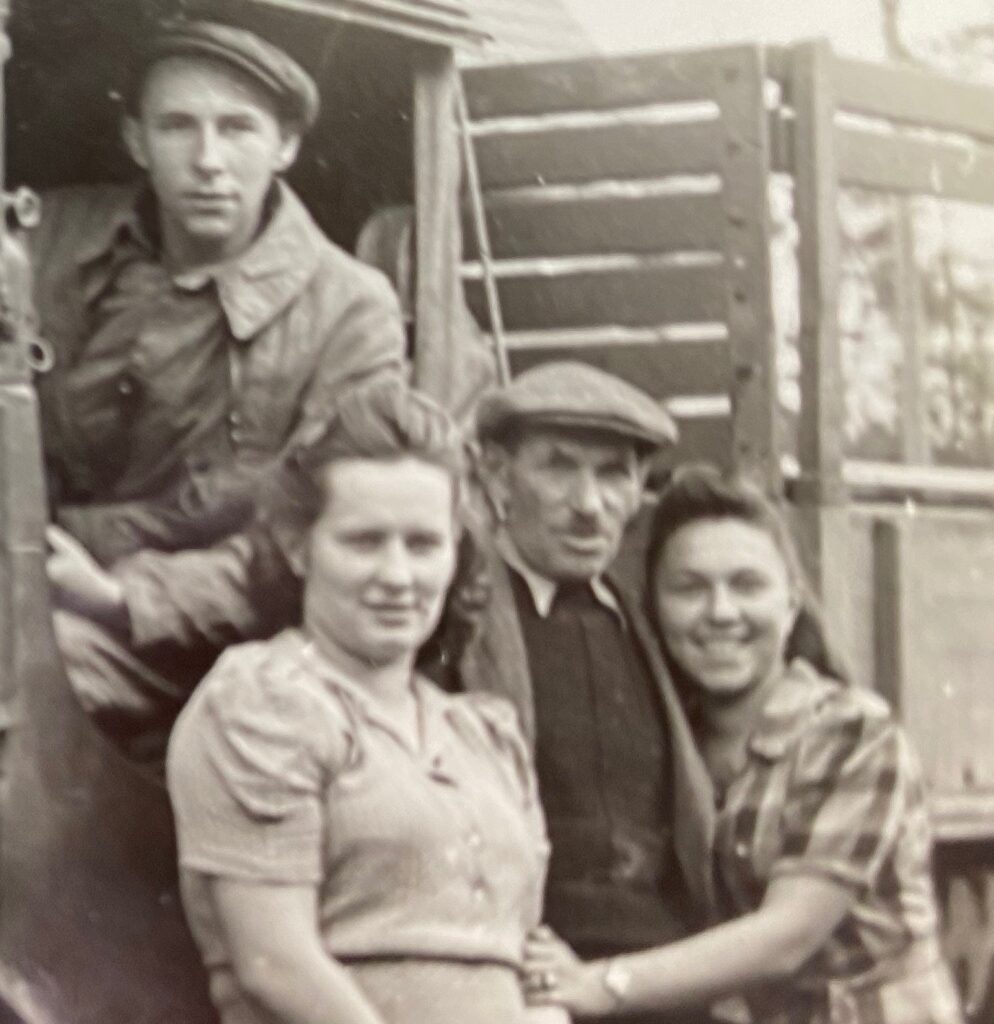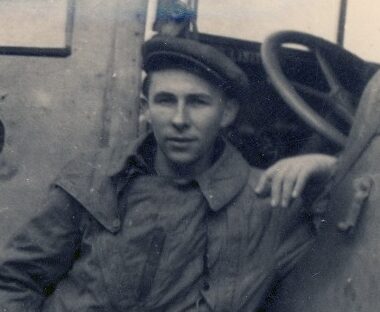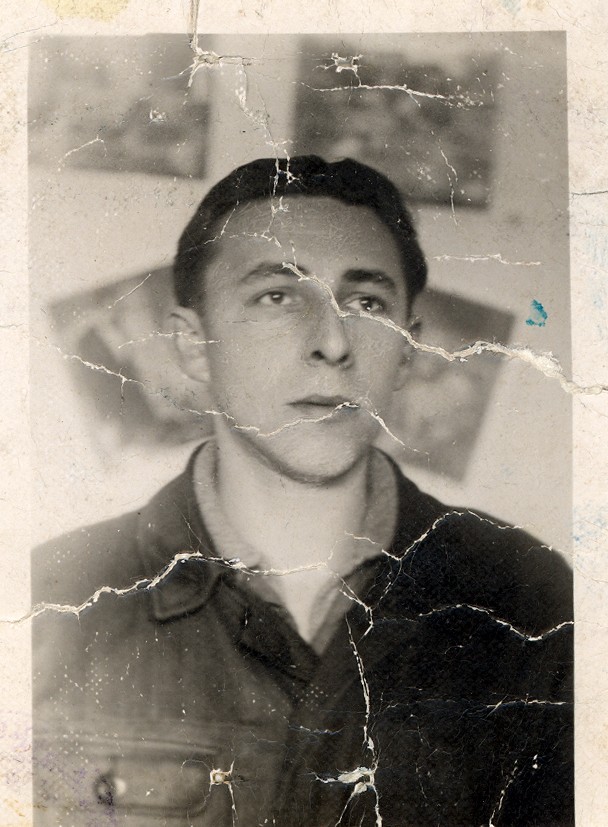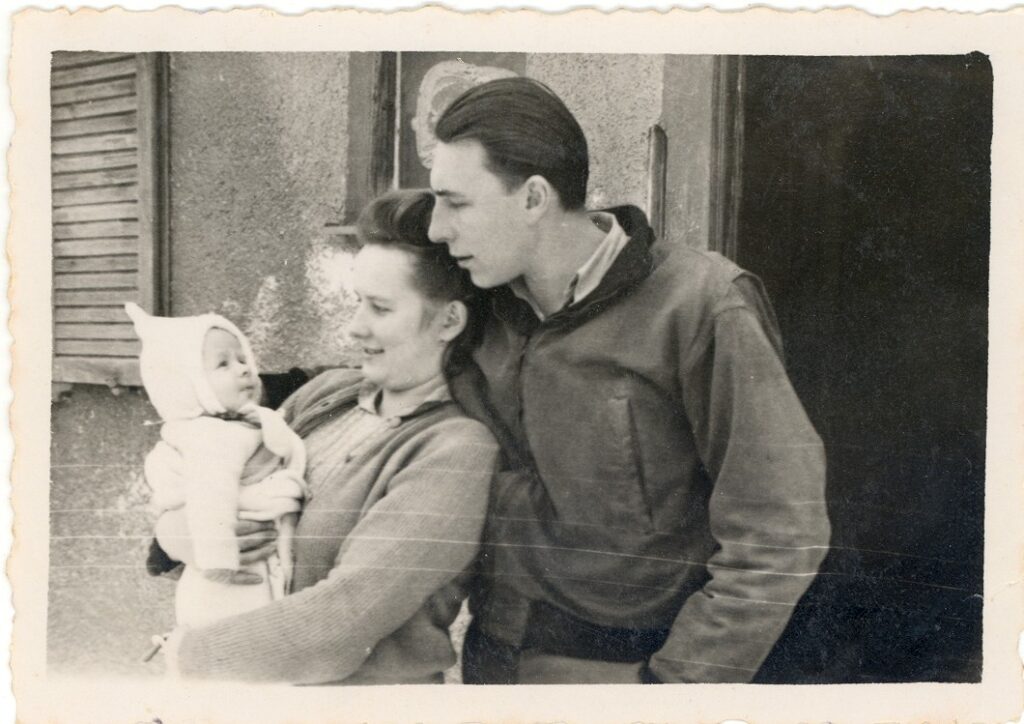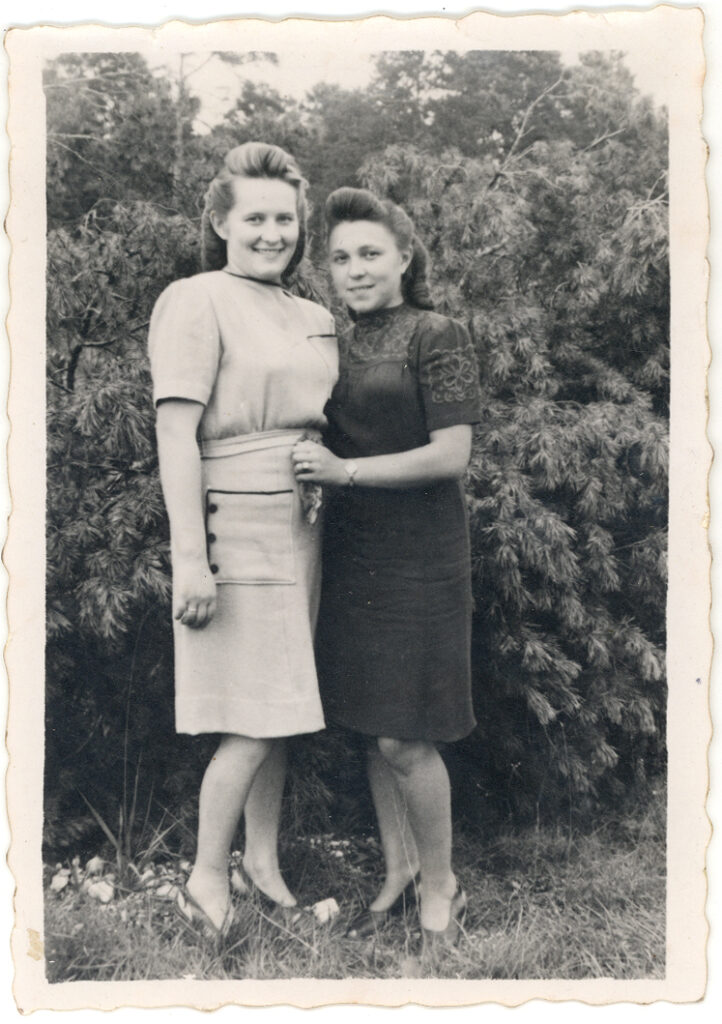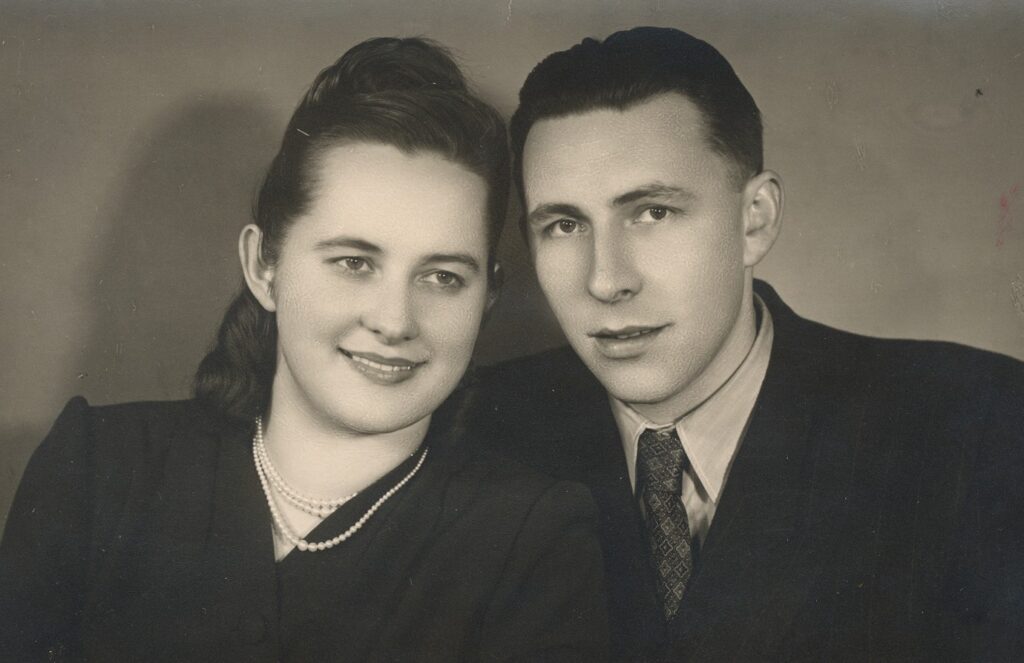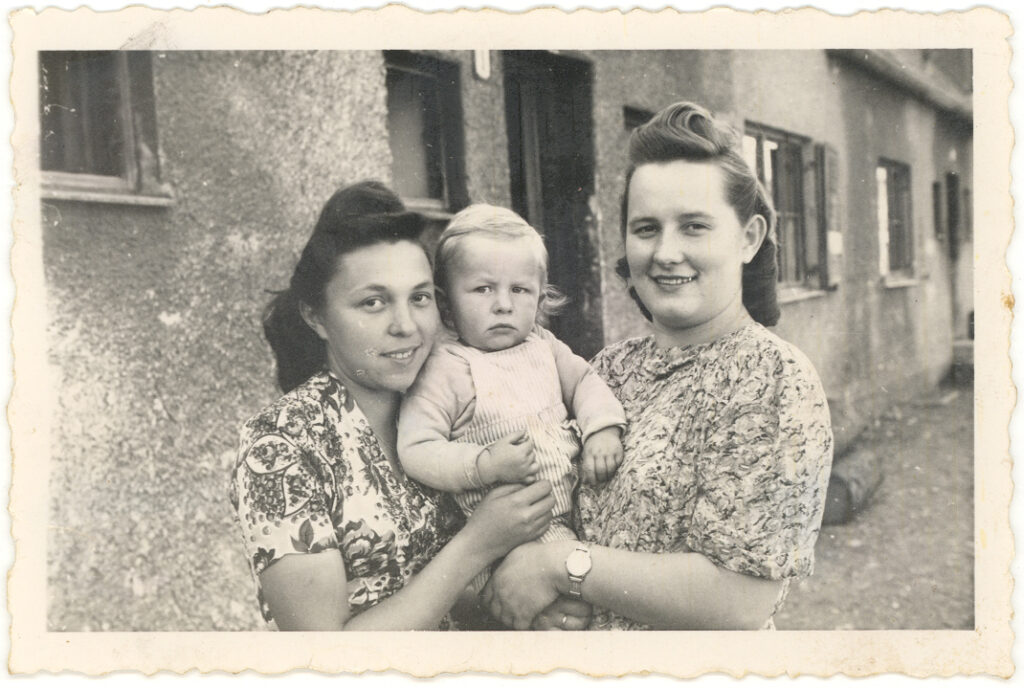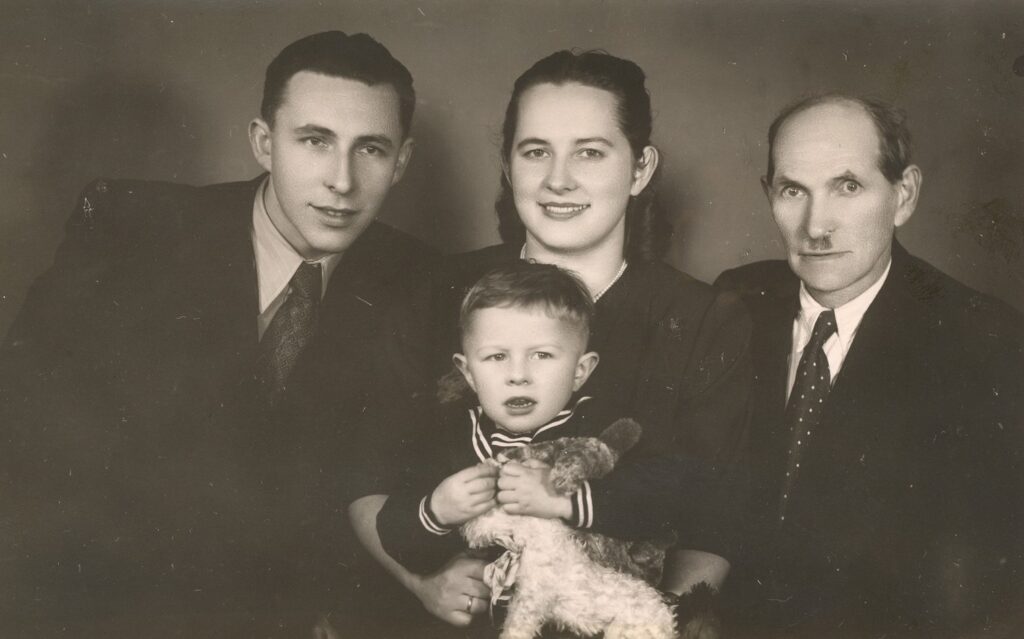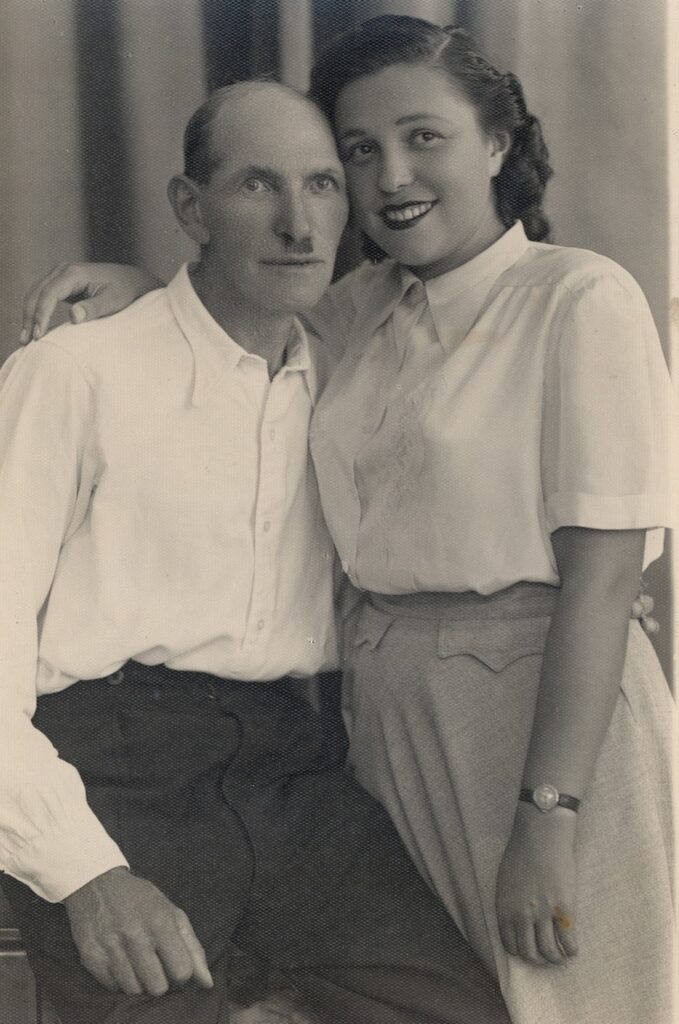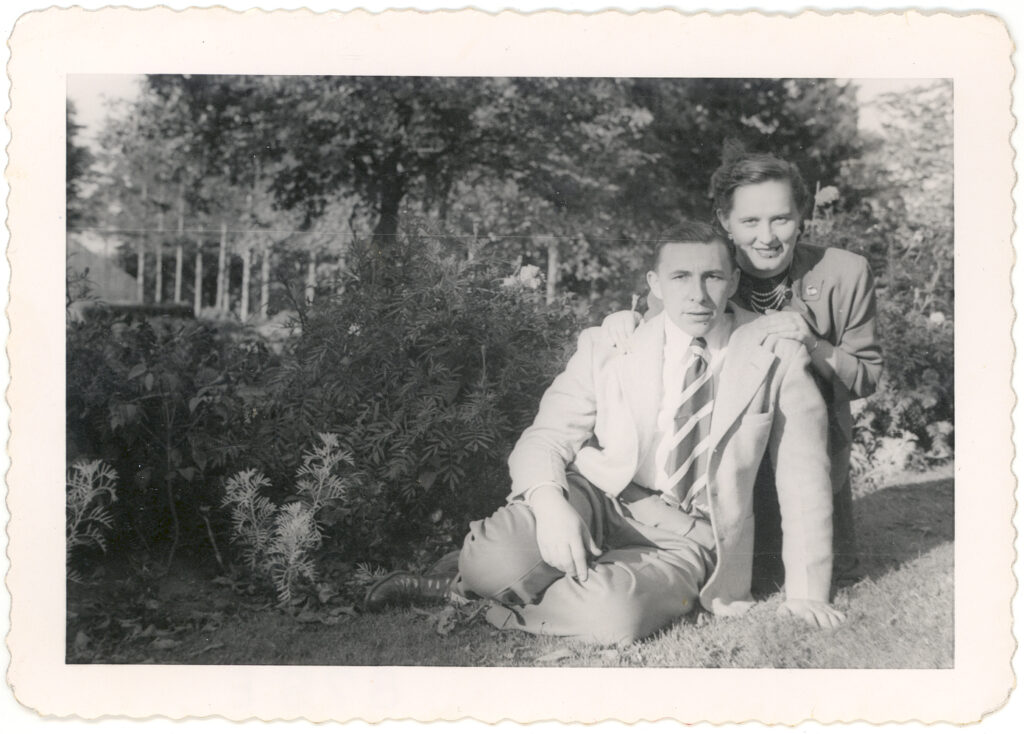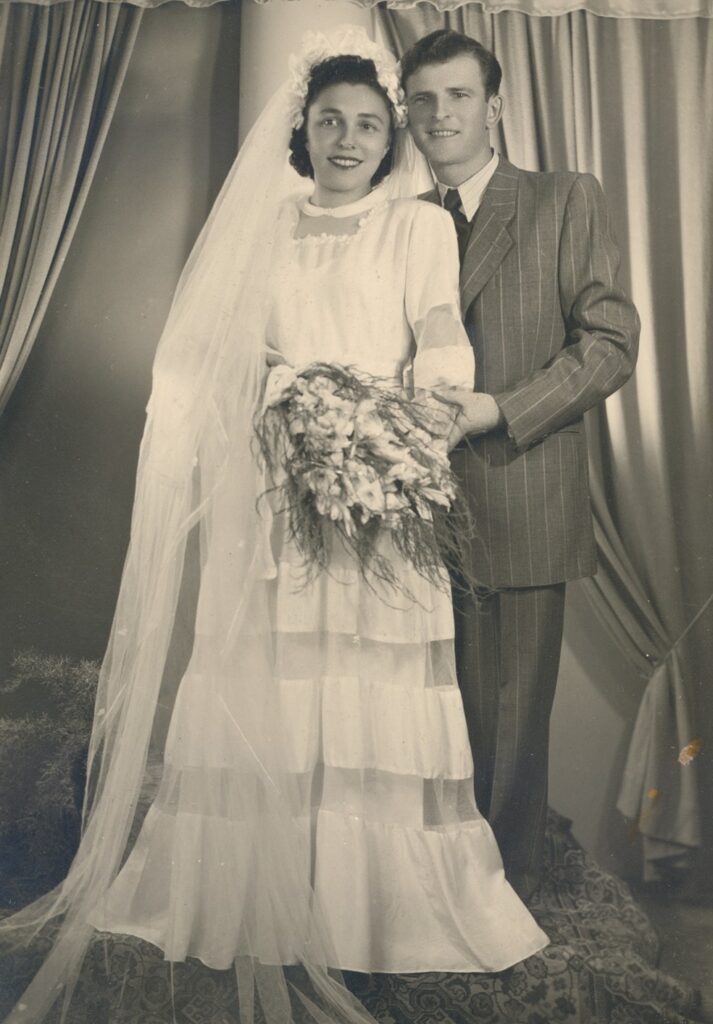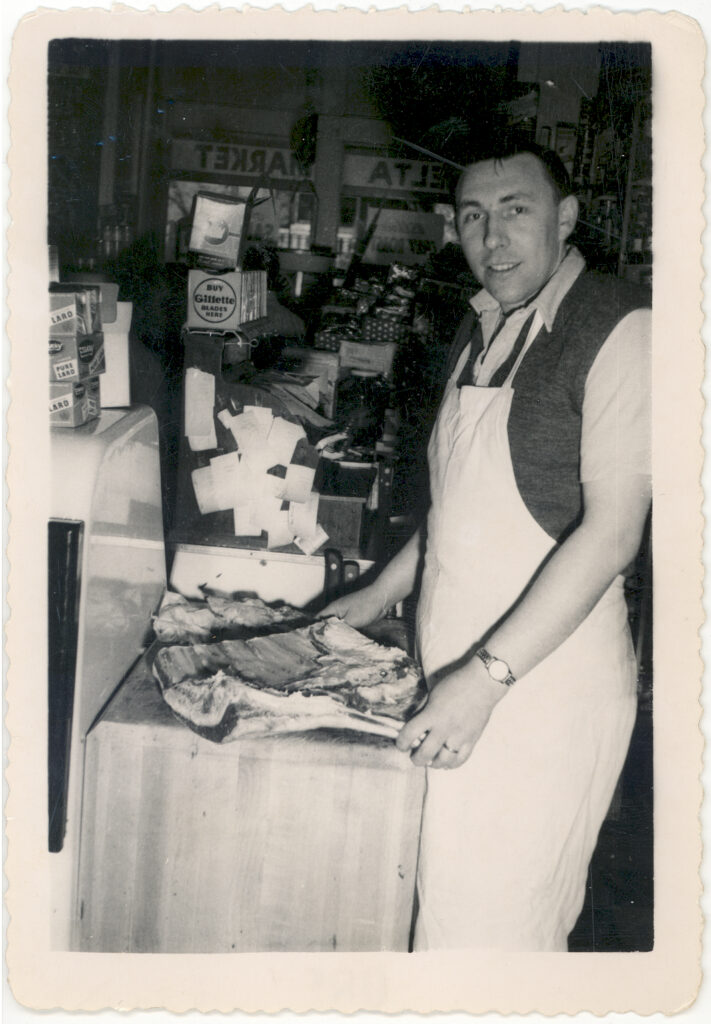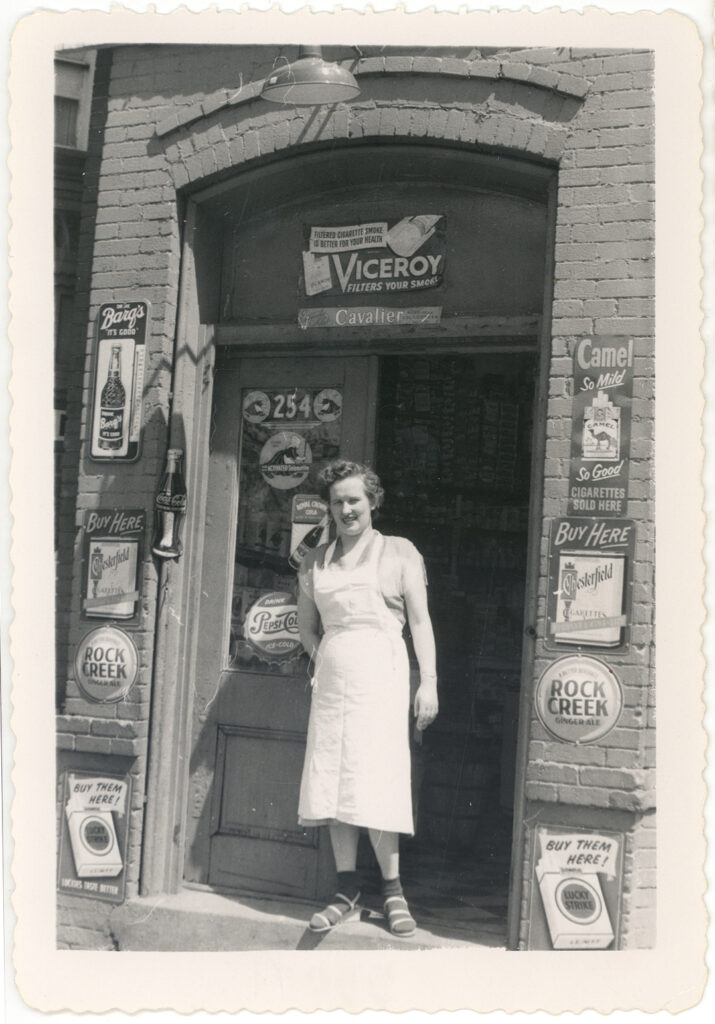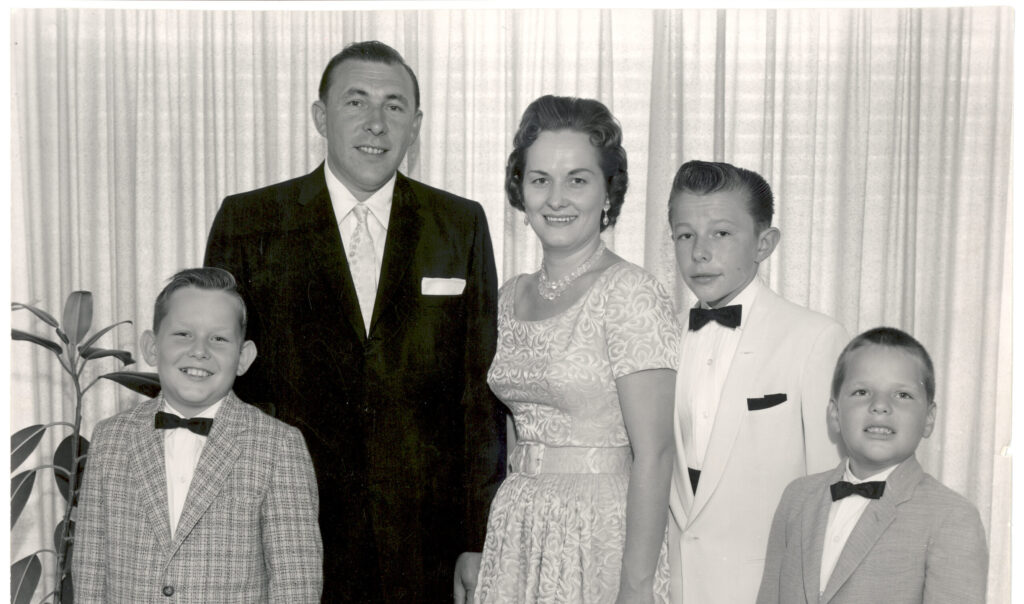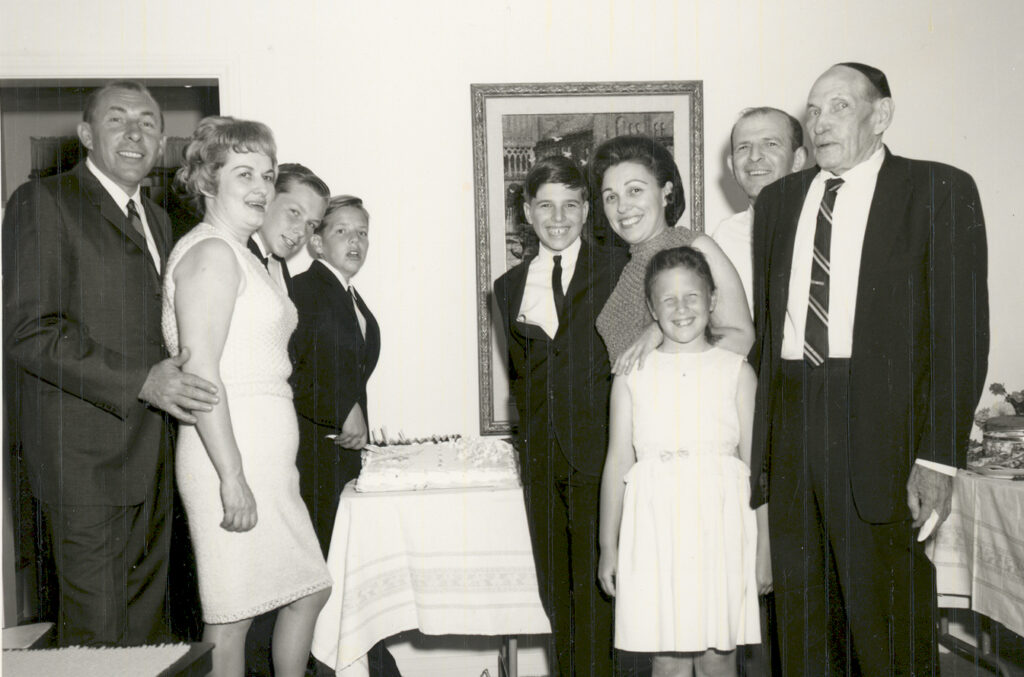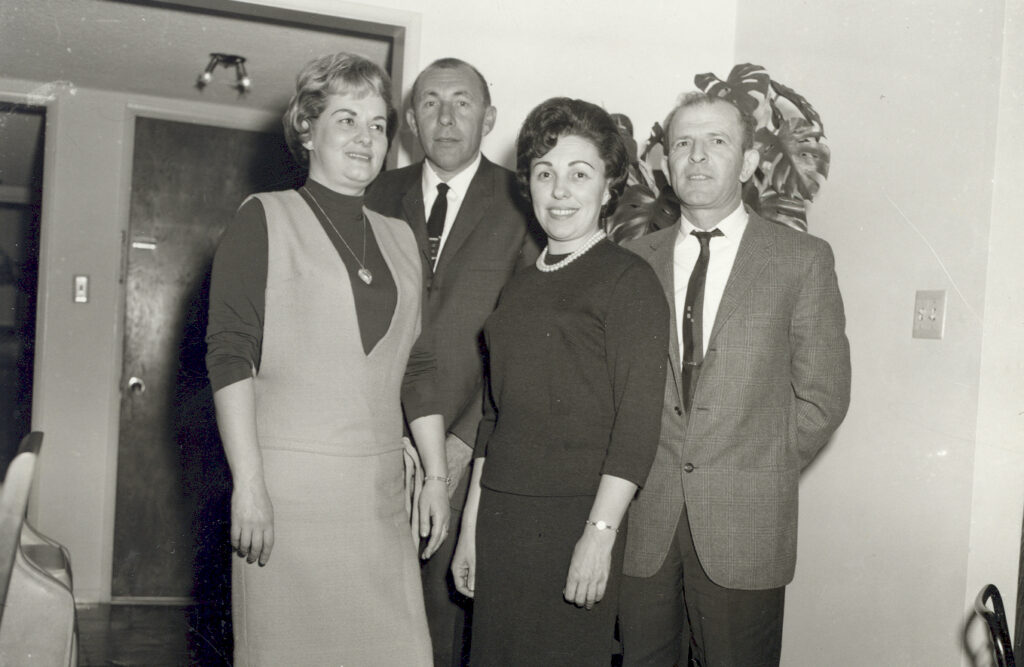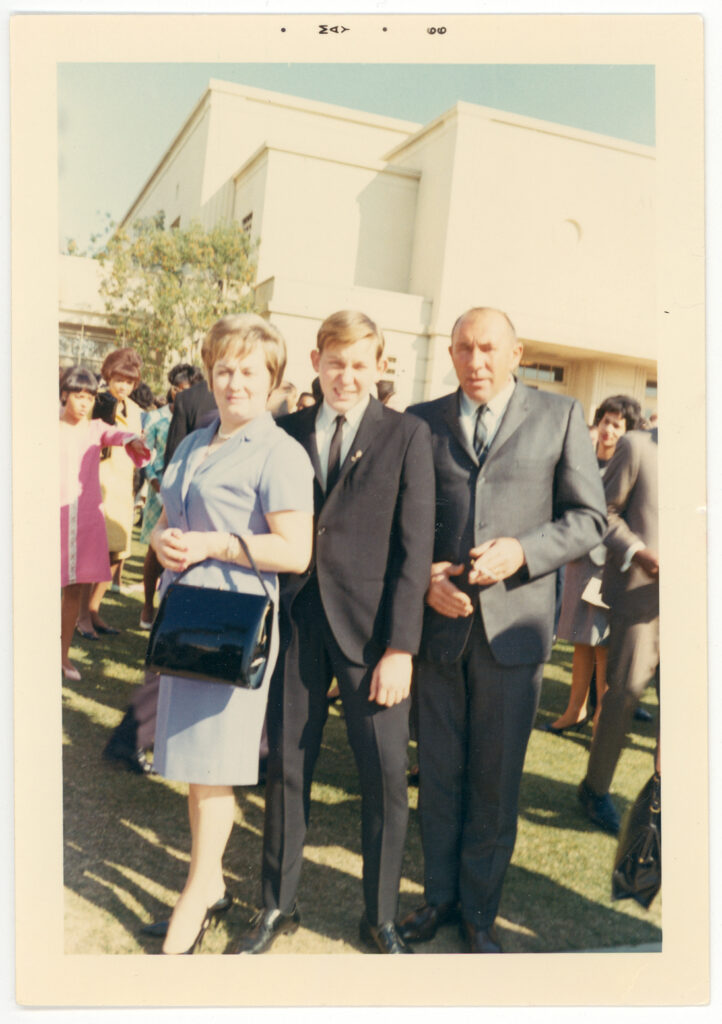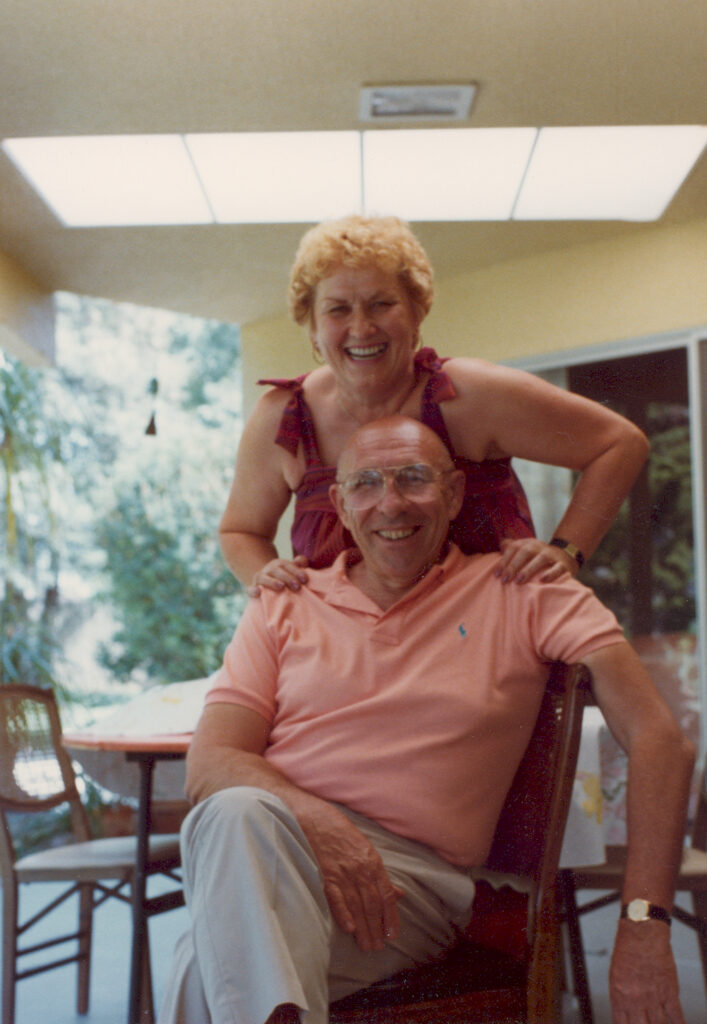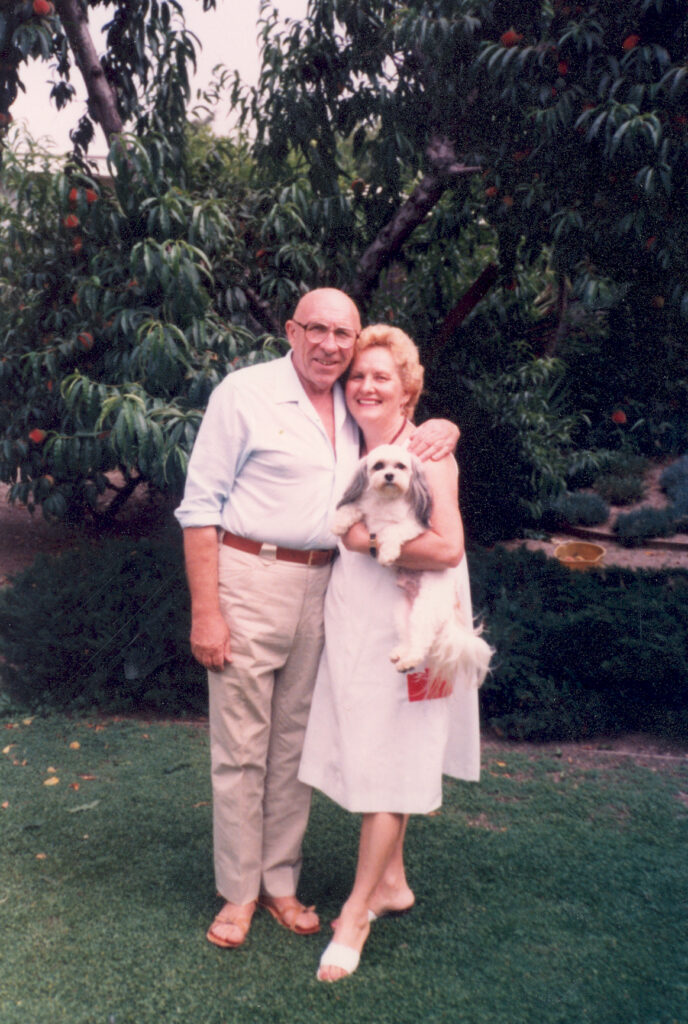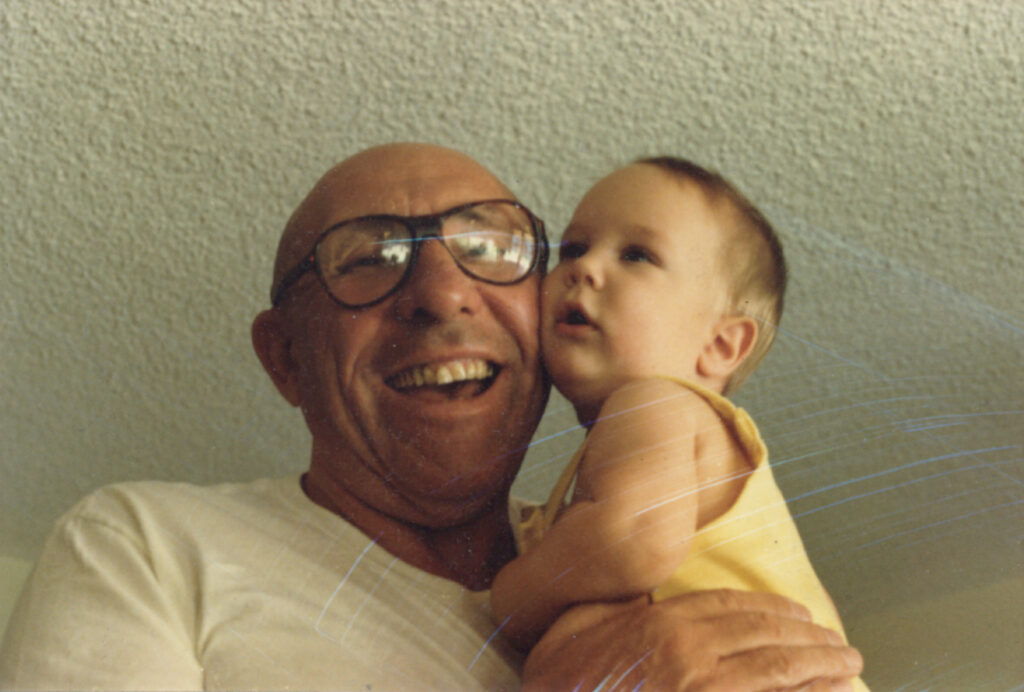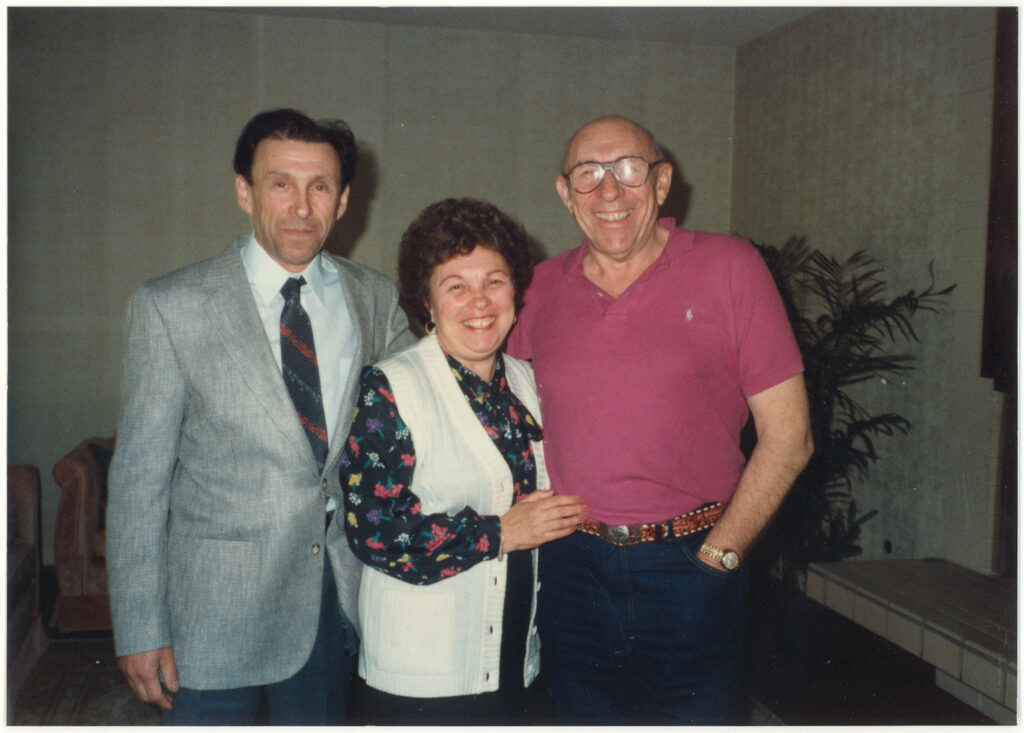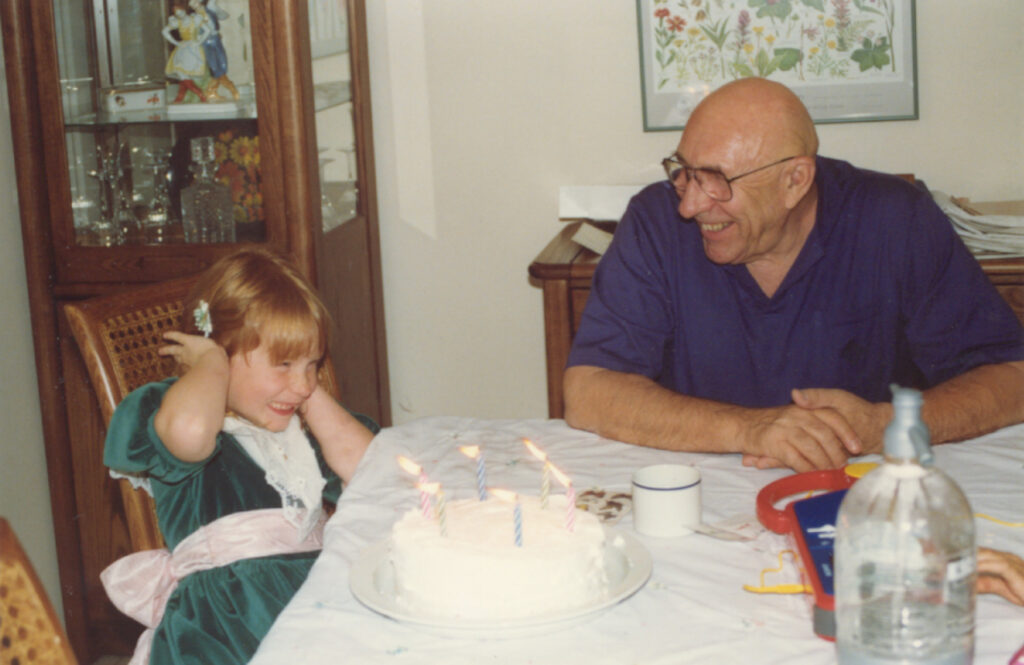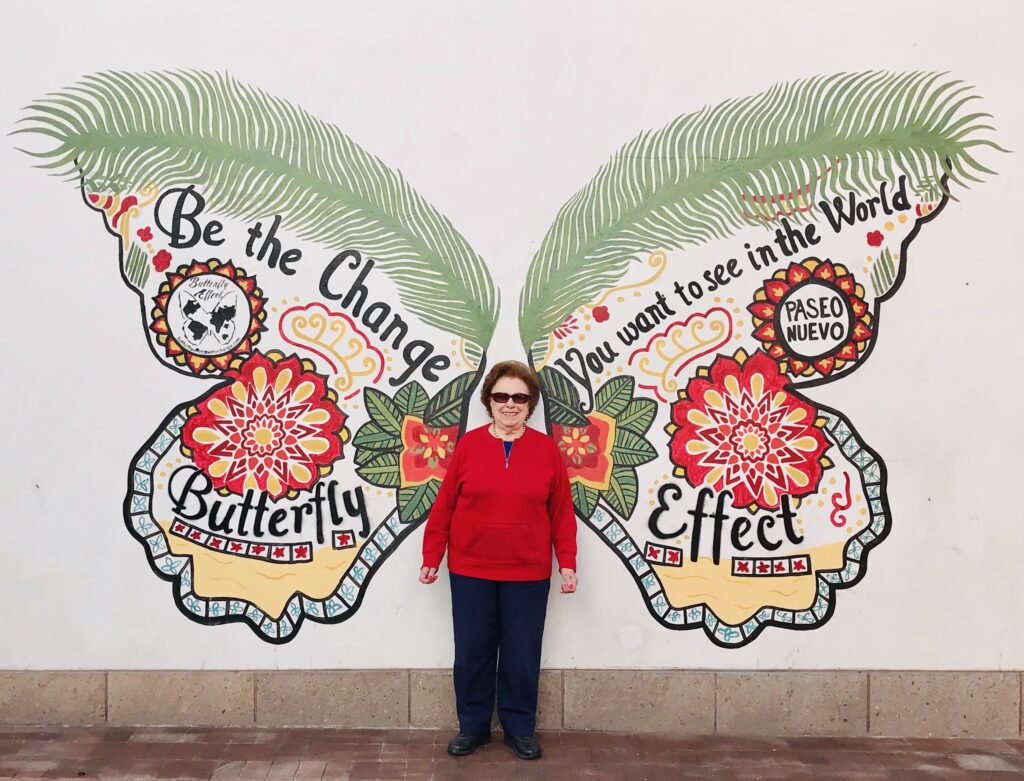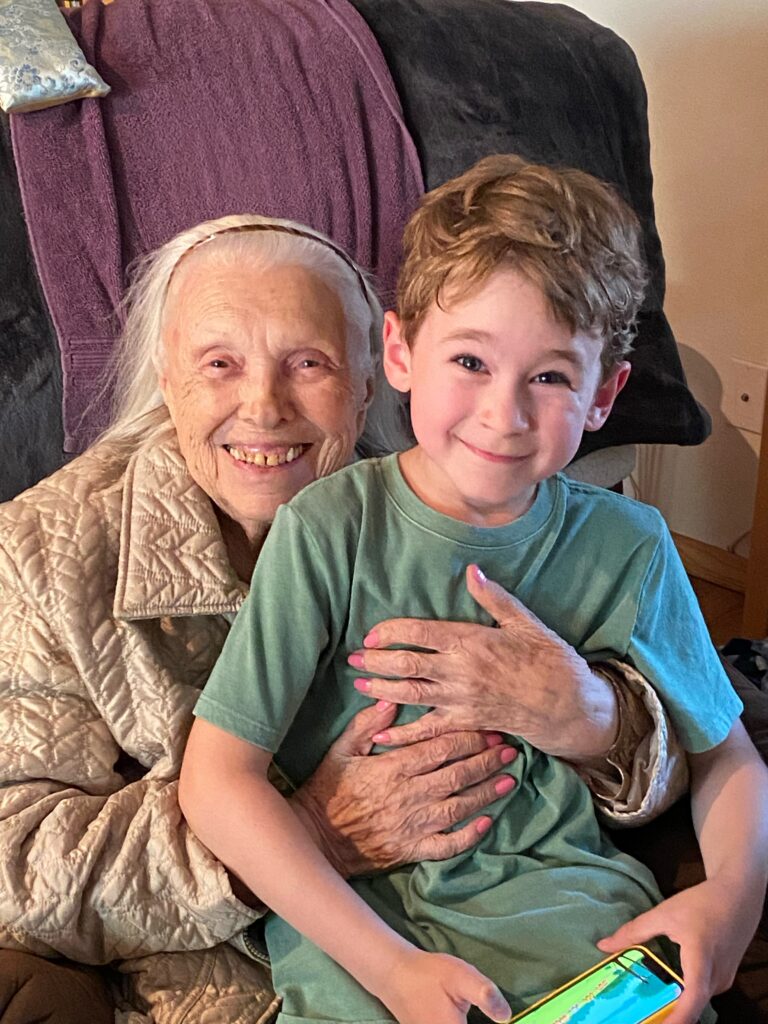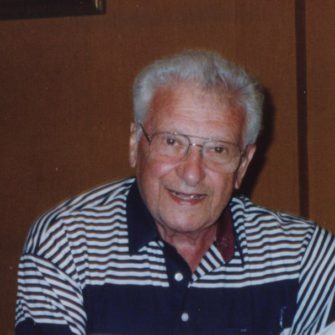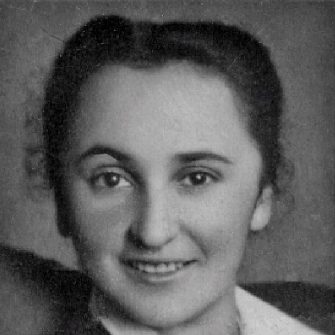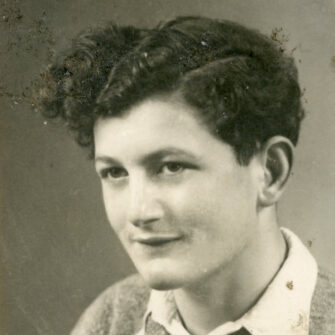Boris Jochai was born in early 1922 in the small village of Swencian, Poland. He lived with his parents, Chaim and Chasia, and his younger siblings, Lova, Dudke, and Pesia. A third of Swencian’s population was Jewish, and it was a vibrant, interconnected community. Boris’ father was a tanner who owned a factory in the village.
On September 1, 1939, Germany invaded Poland. Under the Molotov-Ribbentrop Pact signed in August 1939 by Nazi Germany and the Soviet Union, Poland was divided between the two powers. On September 17, the Soviets invaded Poland from the east. Swencian became part of Lithuania under the Soviet annexation. Despite the occupation, the Swencian population continued their lives without feeling threatened.
During this time, nineteen-year-old Boris and his younger brothers attended a school in Vilna. They were good students and enjoyed their studies. One day in June 1941, the Jochai brothers were traveling home from Vilna when their train was bombed just outside Swencian. They emerged from the train, shell shocked, and saw columns of Soviet tanks and troops rushing to the east. The Nazis had broken the Molotov-Ribbentrop Pact and launched Operation Barbarossa – the invasion of the Soviet Union.
Boris and Lova joined the crowd of people fleeing the approaching German soldiers. Lova had a bicycle and offered it to Boris. Boris insisted that Lova take it and flee. Realizing he could not outpace the invasion, Boris returned home to Swencian.
Life drastically changed for the Jews of Swencian under Nazi occupation. The Germans put Lithuanian authorities in charge of the city. Jewish property, homes, and businesses were stolen and given to Lithuanians. In July 1941, the Jochai family was forced out of their home and relocated to the Swencian Ghetto.
From October 7-8, 1941, the German and Lithuanian authorities murdered the Jews of Swencian and the surrounding villages during the Poligon Massacre. “Useful” Jews were spared for slave labor. Swencian’s Jewish population was reduced from 3,000 to roughly 500 people in two days. Boris’ parents and sister, Pesia, were among those taken to Poligon. Jokubas Ratkevicius “Kuba,” a Tatar who worked at Chaim Jochai’s tannery, saved their lives by advocating that they were useful Jews and the tannery could not run without Chaim.
At first, the Lithuanians laughed at him. But when the Germans learned this information, and that the Lithuanians had ed it, they ordered the Lithuanians to find Chaim Jochai immediately. They could not afford any disruption at the factory. The Lithuanians ran into Poligion screaming “Jochai! Jochai!”
When they found Chaim, he insisted that his family also be spared. In addition to Chasia and Pesia, Chaim saved eighteen more people by claiming they were part of his family.
As their fate became apparent, the youth of the ghetto began arming themselves. On February 16, 1942, Boris and Dudke attended the first resistance meeting in the Swencian Ghetto. Encouraged by their father, the Jochai’s house became the resistance’s headquarters. They held meetings in the basement, where a clandestine radio was monitored for news of the war. Chaim’s experience fighting against Germany during WWI convinced him they needed to organize and fight back.
Boris and Dudke worked in a munitions warehouse outside the ghetto and smuggled ammunition and hand grenades into the ghetto. Their younger sister Pesia also helped by smuggling items for the resistance fighters.
In May 1942, Boris and fellow resister Yitzhak Arad met with Judenrat to obtain money to buy smuggled guns that Kuba had acquired from the Lithuanian black market. When the Judenrat leader refused, Boris held him up at gunpoint. After a heated meeting, the leader relented.
The partisans’ search for guns and ammunition was critical. Before the ghetto was established, the father of a partisan had hidden revolvers in his house, which a Lithuanian police officer now occupied. Boris and a few others hatched a plan to sneak the guns out of the house. The revolvers were hidden behind a wall of bricks in the cellar, which the partisans could reach by a separate entrance. After chiseling their way through the brick, they emerged with more weapons.
On another occasion, Dudke and two other partisans, Reuven Miadziolski and Gershon Back, were cleaning and preparing the guns for partisan activities when Reuven accidentally shot Gershon in the neck with a revolver. Although the shot was not fatal, the noise and wound were their undoing. Gershon needed medical attention and was taken to the hospital. The Judenrat reported these activities to the authorities. Gershon and Reuven were arrested and tortured by the Lithuanian police before being killed. They never betrayed Dudke or the other resistance members.
In early 1943, Boris, Dudke, and a group of fellow partisans escaped the ghetto for the nearby Cerkliszki Forest. They were armed and eager to connect with the Soviet partisans. For two months, the young Jewish partisans survived in the forest alone until a pro-Soviet Lithuanian forest guard connected them with the Chapaev Brigade.
The Soviets immediately confiscated the Jewish partisans’ weapons upon their joining the Chapaev Brigade. At first, Boris and his group were given tasks around the base and assisted on missions. However, Boris was appointed commander of a demolition unit within three months of joining the partisans. The Soviet partisan leadership noticed and valued Boris’s fearlessness, decisiveness, natural leadership, and knowledge of the area.
The demolition unit’s main objective was to destroy German supply lines. As the Germans transferred troops and supplies to the front, the partisans blew up trains and damaged railroads and electrical grids. Boris is credited with destroying 18 German trains. Boris went on to fight with the Vilnius Otriad, while Dudke stayed with the Chapaev Brigade.
The Germans often conducted “sweeps” of the forest to clear out the resistance in active areas. Dudke was killed in such a sweep in 1943.
The Swencian Ghetto was liquidated on April 4, 1943. Boris’ parents and sister went into hiding in the tannery’s attic. Kuba and other Tatar factory employees, as well as Boris, who brought them supplies, cared for and fed them. In May, Chaim left the hideout with Boris to join the partisans.
However, there was one Lithuanian employee who was not to be trusted. Lithuanian troops regularly searched for Jews in hiding, including the factory and attic. Boris’ family was hidden in a secret compartment that was obstructed from view. One evening, the Lithuanian employee noticed birds flying into a hole in the factory roof, but had not recalled seeing birds in the attic. He investigated just as Boris and a few other partisans left the hideout. The employee started shouting and began running to find an authority to report them.
A factory worker tried to calm him, saying that instead of telling the authorities, they should tell the Jochai’s to leave early the following day and leave it at that. He told the Lithuanian worker to come into the house to discuss it further.
Boris and his fellow partisans were waiting inside. They told the Lithuanian that if he said anything to anyone, they would kill him. After letting him go, the Lithuanian went directly to the Nazi authorities and exposed the family. Chasia and Pesia were discovered and were arrested by the Gestapo. They were returned to the Swencian Ghetto before being transferred to the Vilna Ghetto.
Chasia and Pesia were in the Vilna Ghetto for three months before its liquidation. They were sent to the killing site in the Ponary Forest, where thousands of Jews were murdered between 1941-1944. Pesia survived, but Chasia was tragically killed.
In July 1944, Boris and his fellow partisans joined the advancing Soviet Army to liberate Lithuania from the retreating German army. Boris returned to Swencian after the liberation and was met with hostility. Though it was in the Soviet Zone, the village was controlled by Lithuanians and Jews were unwelcome. Chaim and Boris returned to the tannery and tried to pick up the tattered pieces of their lives and help others in dire straits. They made shoes for refugees, and Boris met his future wife, Esther, who was among those queuing for shoes.
In May 1945, Boris moved to Lodz and joined Kibbutz Gordonia. He waited for Esther to arrive from Vilna, where she was searching for survivors from her family. In late 1945, Boris and Esther went to the Fohrenwald Displaced Persons camp near Munich, where they were married. Their first son, David, was born there in 1946.
Boris defected from the Soviet Army and found a way to the American side of Fohrenwald. He strong-armed the camp leadership for increased rations and sold kosher meat and vodka on the black market.
Pesia, liberated from Ponary, and Chaim also lived in Fohrenwald before immigrating to Israel. Boris, Esther, and David were planning on joining them, but telegraphs came from Pesia and Chaim advising him against it. Life was difficult there, and Boris would end up in the military. They all wanted his family to have a different life.
It wasn’t easy to get passage to the United States, but Boris connected with a family member in New York who sponsored Boris, Esther, and David. In 1949, the Jochai family immigrated to the United States. They moved to Massachusetts, then Washington DC, and finally settled in Los Angeles in the 1950s. They had two more sons, Harold and Larry.
Seventeen years after he disappeared from Swencian during the first days of the Nazi invasion, the Jochai family heard from Lova. Pesia regularly sent staple items that were difficult to get in Lithuania to Kuba, the Tatar who saved Chaim and Pesia’s life. Meanwhile, Lova sent word to Swencian to see if anyone in his family had survived. The message reached Kuba, who sent the joyful telegram to the Jochai’s, stating that Lova was alive and living with his wife and children in Siberia.
Boris became a successful businessman in Los Angeles. He ran a recycling business until his retirement in the early 1990s. Although he was highly decorated in the war, he didn’t like to dwell on his experiences. Instead, he focused on the new life that his family was creating for the next generation.
Boris was a fierce and loyal protector of his family, and a beloved grandfather to five grandchildren. He passed away in 2002.
Notes: Boris is the partisan shown in the famous photograph of a partisan blowing up a German railroad track (pictured here). Today, Boris’ grandson supports the development of JPEF’s new Foundations of Resistance: A Curriculum to Counter Antisemitism for Grades 6-12 with his graphic design skills.

